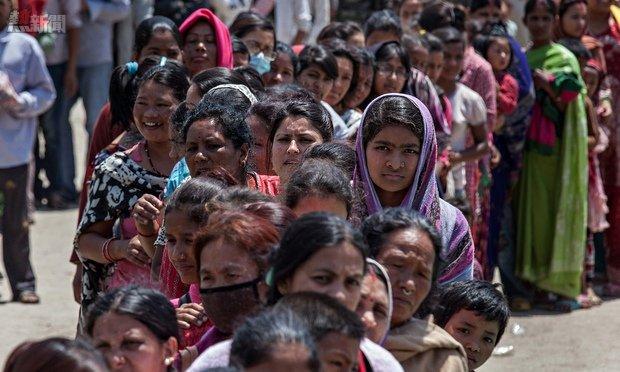相信大家對尼泊爾的災情感到心痛,但如果大家真的想動身去尼泊爾,請先看看此文章:
"Don't rush to Nepal to help. Read this first"
節錄:
災區資源緊張,你在當地做義工,會是Added value, 還是要別人花更多資源照顧你?你有的技能,是災區最需要的嗎?
現在可以做的:
你可以節省去當地做義工的機票,找一家信任的機構捐款,以不是捐贈物品,因為運輸成本也是成本。
短期內不要到達災區,好使他們有時間服原。
救災,不是短暫的事。
請不要因為自我感覺良好,做一些增加別人負擔的事。
by HKYOYOWING
https://www.facebook.com/hkyoyowing.page
===
"Don't rush to Nepal to help. Read this first"
As someone who has considered Nepal home for many years, the shock on hearing the news of the earthquake that has devastated the country was extreme. I felt pained at being away from home – cut off in rural Cambodia – at a time like this, impotent and powerless.
The quake has left thousands dead, many more injured and even more without shelter. What we also know from tracking events in natural disasters all over the world is that the situation only gets worse in the weeks following the event, as hospitals become overwhelmed, basic supplies become scarce and those living in temporary shelters succumb to exposure and disease. The example fresh in everyone’s minds is the 2010 earthquake in Haiti – a country in a similar economic condition to Nepal and which, despite an enormous influx of international aid, is still recovering from the disaster five years later.
Something that has been much discussed in the international aid community is the lack of coordinated response to the Haiti disaster. Ragtag brigades of well-intentioned do-gooders flooded the country: students, church congregations, individuals who had previously vacationed in the area, all clambering over one another looking for a way to make their mark and do good, but lacking either the skills or coordination to have an impact. Indeed, many ended up slowing down the aid efforts.
There were even reports of teams of doctors who arrived to help but were unable to feed themselves. This wave of unsolicited and poorly planned shipments of untrained people and donated goods was dubbed by some humanitarians “the second disaster”.
One of the biggest problems with relief work is that it is a free-for-all. Anyone who wants to, and who is privileged enough to afford a plane ticket, can pitch up. Unlike doctors or engineers, who need to train for years to gain qualifications that prove they probably know what they’re doing, no such qualification exists for aid workers.
What Nepal needs right now is not another untrained bystander, however much her heart is hurting. Nepal has one international airport for the entire country, which has itself sustained damage. That airport needs to be used for emergency supplies, immediate aid for the victims, and qualified, professional relief workers. My trip back to commiserate with loved ones can wait a few weeks.
I have been inundated with offers of help and contributions from friends and family. Everyone is asking: “What do you need? What can I do?” Here are some practical ideas that will not hamper the aid effort:
• Remember that it is not about you. It is not about your love for the country and its people. Your feelings of guilt and helplessness may be difficult to deal with, but you may not be what is needed right now. Do not rush to go there, at least for the next couple of weeks while the country is reeling. The exception to this is if you are a qualified professional with much-needed skills to offer. If you are, join up with an international relief agency that can place you in a position where you are needed most.
• Do not donate stuff. Secondhand goods are difficult to distribute in a disaster area and are hardly ever what is actually needed. It is easier, and often in the long run cheaper, for organisations to procure goods themselves and distribute based on need. If you want to give away things you no longer need, sell them and donate the money to the relief fund. Or give them to a local charity shop, which can convert them into cash on your behalf.
• Give money. More than your plane ticket or your collection of old T-shirts, what is most needed in Nepal right now is money. Donate what you can, to a reputable relief organisation, and do research to find out where your money will go. If you can, compare a few organisations with aid appeals and ensure that you agree with their approach.
• In the short term, handouts are necessary. I have previously questioned this as a method of long-term development. However, in the immediate wake of such devastation, handouts are necessary to give victims the essentials for survival.
In the long term, rebuild sustainably. If in the coming months you want to contribute to the rebuilding efforts and the longer-term development of the country, consider sustainability as a factor. There will be many programmes to repair and rebuild destroyed houses. Nepal is an earthquake-prone country, so the buildings most likely to withstand another quake are not those that are cheapest, or those made by foreign volunteer labourers for “free”.
• And if you do decide to go ... Please look at the resources we have produced on the Learning Service website before you get on the plane. I am not against volunteering; I am imploring you to wait a while and think carefully about where to use your skills. Volunteering can have a wonderful impact on the world, when done mindfully. But it is not easy or automatically beneficial. Before signing up for a programme, spend time learning about Nepal and the complex nature of its recovery and development, and continue to be open to learning during your time there.
Article and Picture From
http://www.theguardian.com/commentisfree/2015/apr/27/earthquake-nepal-dont-rush-help-volunteers-aid?CMP=fb_gu

如要前往尼泊爾救災前,請看此文章
https://www.facebook.com/hkyoyowing.page
















